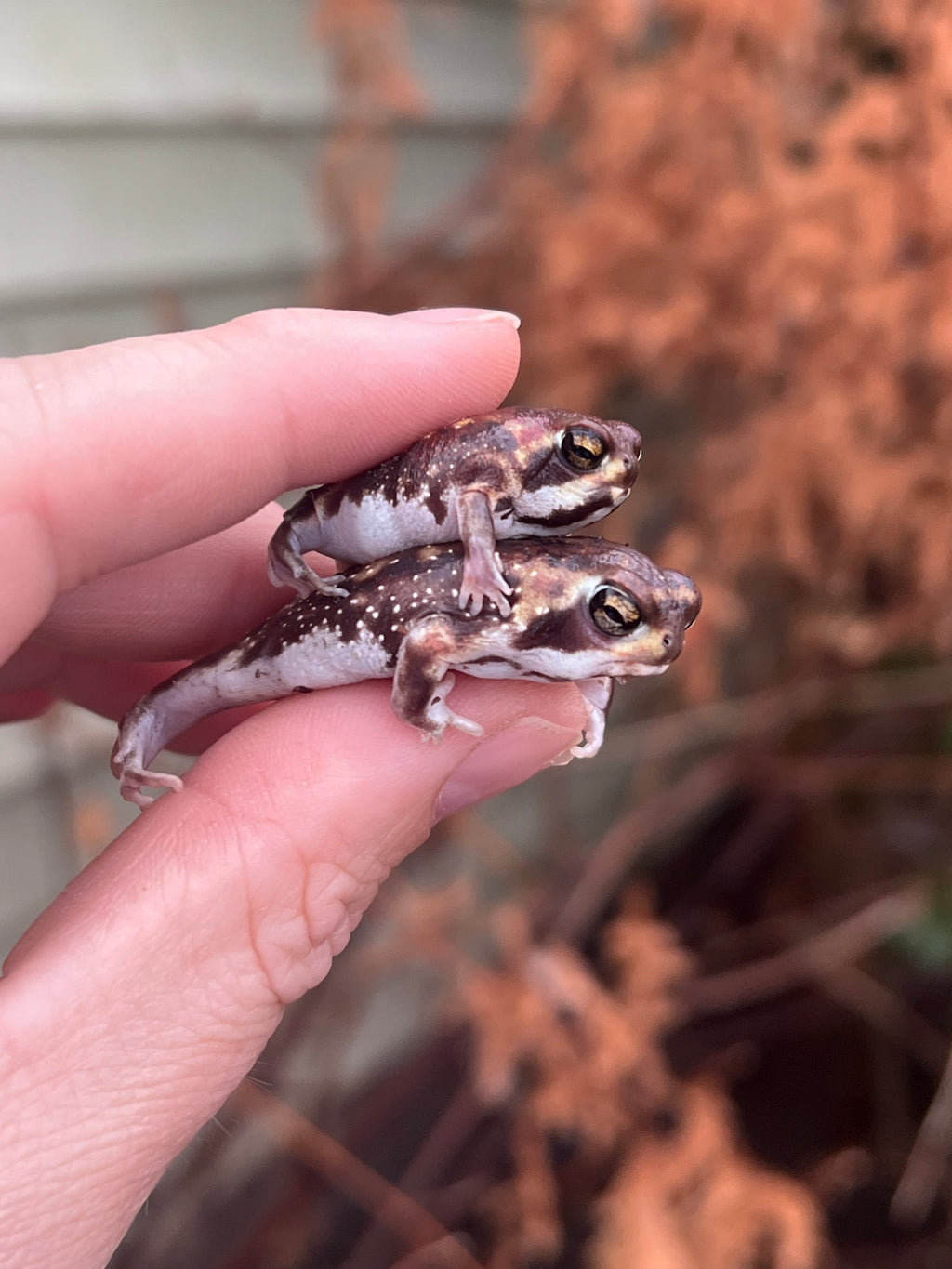Locate Your Perfect Rain Frog for Sale: Study the Globe of Unique Amphibians!
Locate Your Perfect Rain Frog for Sale: Study the Globe of Unique Amphibians!
Blog Article
Common Wellness Issues in Reptiles: Signs And Symptoms and Solutions
In the elaborate world of reptile treatment, comprehending the typical health concerns that may impact these unique animals is paramount in guaranteeing their well-being. Whether it's grappling with parasitic problems, navigating dehydration worries, or addressing skin conditions that show up in subtle methods, being attuned to the signs and symptoms and geared up with the expertise of effective services is crucial for any reptile proprietor.
Respiratory System Infections
Respiratory infections in reptiles can substantially influence their total wellness and require prompt attention from skilled veterinarians. These infections are typically brought on by viruses, bacteria, or fungis and can manifest through symptoms such as wheezing, nasal discharge, open-mouth breathing, and lethargy. In reptiles, respiratory infections can be specifically testing to identify and treat because of their distinct anatomy and physiology. Vets often count on a mix of checkups, analysis imaging, and lab tests to accurately recognize the underlying source of the infection.
Therapy for respiratory infections in reptiles typically entails a combination of supportive treatment, such as maintaining correct humidity degrees and temperature slopes in the room, along with targeted medicine to address the details microorganism in charge of the infection. It is vital for reptile owners to check their pets very closely for any indicators of respiratory distress and look for veterinary care at the earliest sign of a concern. With prompt intervention and ideal treatment, several reptiles can recover totally from respiratory infections and resume regular activities.

Metabolic Bone Illness
What factors contribute to the advancement of Metabolic Bone Illness in reptiles?
Metabolic Bone Condition (MBD) in reptiles is primarily caused by a lack of appropriate calcium, phosphorus, and vitamin D3 levels in their diet plan. When reptiles do not get ample calcium, either via their food or proper UVB exposure for vitamin D3 synthesis, they are at a high risk of developing MBD. Reptiles with diets low in calcium or imbalanced calcium to phosphorus ratios are particularly vulnerable. In addition, poor direct exposure to UVB light protects against reptiles from manufacturing vitamin D3, which is crucial for calcium absorption and bone health.
Inadequate humidity levels can additionally affect a reptile's capacity to metabolize calcium efficiently. Normal veterinary examinations, proper husbandry methods, and a well balanced diet plan are crucial to stop Metabolic Bone Condition in reptiles.
Parasitic Problems
Parasitical invasions posture a considerable health risk to reptiles, impacting their overall health and needing punctual veterinary interest. Reptiles can be influenced by various parasites, consisting of termites, ticks, internal worms, and protozoa. These parasites can trigger an array of symptoms, such as weight loss, lethargy, skin irritability, looseness of the bowels, and even death if left without treatment.
One usual parasite found in reptiles is the mite, which can trigger skin anemia, irritability, and stress and anxiety. Ticks are an additional exterior bloodsucker that can send conditions and create pain to the reptile. Inner bloodsuckers like worms and protozoa can bring about digestive issues, malnutrition, and weaken the reptile's immune system.
To diagnose a parasitic problem, a vet might do fecal examinations, skin scrapings, or blood tests. Treatment typically includes deworming medicines, antiparasitic bathrooms, or in extreme cases, a hospital stay. Preventative procedures such as normal veterinary examinations, proper hygiene, and quarantine procedures for brand-new reptiles can help reduce the threat of parasitical invasions and make certain the health of reptile pets.
Dehydration and Hydration Issues
Dehydration in reptiles can significantly influence their health and wellness and well-being, requiring timely treatment and proper hydration administration. If left untreated, dehydration can lead to significant health concerns and even be deadly to the reptile.
To prevent dehydration, reptile proprietors should make sure that their pets have accessibility to tidy water whatsoever times. The water recipe ought to be big sufficient for the reptile to take in if required, specifically for species that take in water via their skin. Additionally, preserving correct humidity degrees in the reptile's enclosure and offering routine bathrooms can help stop dehydration.
In instances of dehydration, it is essential to look for vet treatment promptly. A veterinarian may carry out liquids either by mouth or through injections to rehydrate the reptile. It is necessary to address the underlying source of dehydration to avoid reappearance and ensure the reptile's overall well-being.
Skin Conditions

Final Thought

Respiratory infections in reptiles can considerably impact their total health and call for timely focus from knowledgeable veterinarians (rain frog for sale). Preventative actions such as routine vet check-ups, correct hygiene, and quarantine treatments for new reptiles can aid reduce the threat of parasitic problems and ensure the health of reptile pets
If left unattended, dehydration can lead to major blog health problems and also be fatal to the reptile.
Consistently inspecting your reptile for any type of adjustments in skin color, structure, or look can help in very early discovery and treatment of skin conditions, advertising the total health and wellness of your flaky friend. - rain frog for sale
In conclusion, reptiles are susceptible to different wellness issues such as respiratory infections, metabolic bone illness, parasitical problems, dehydration, and skin ailments.
Report this page